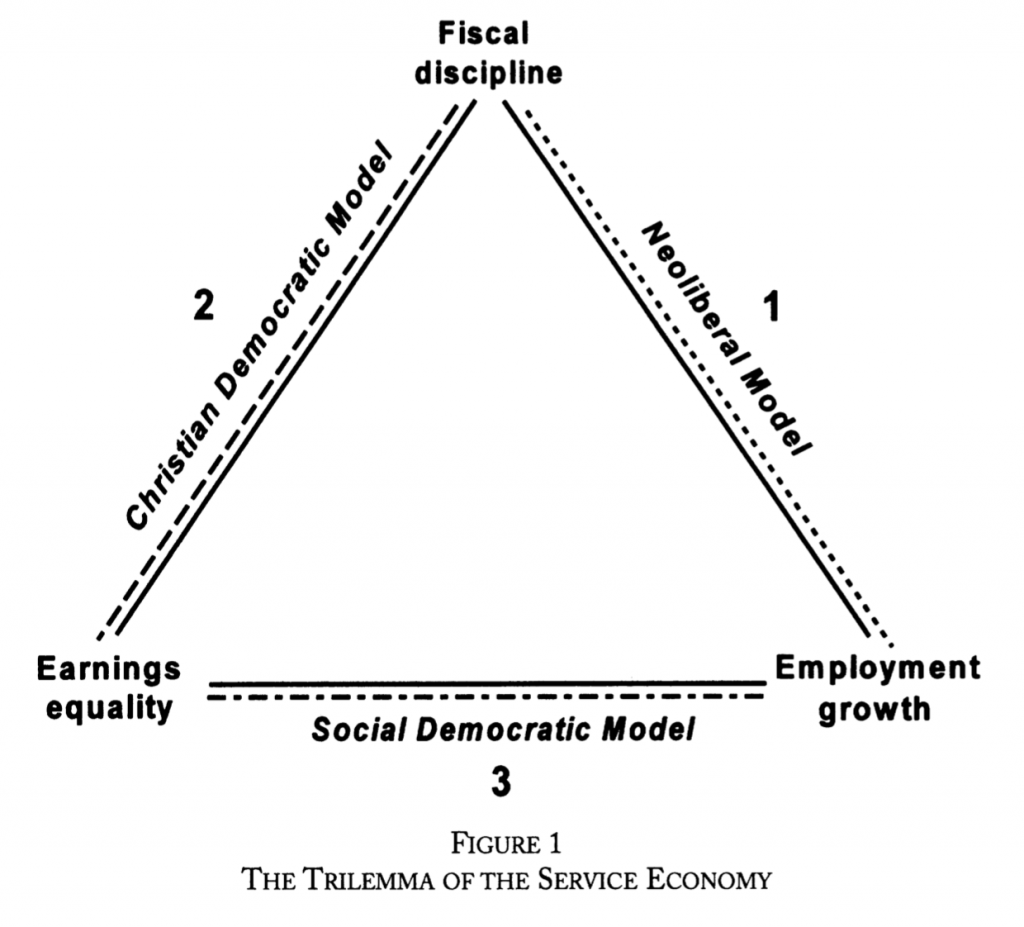The Trilemma of the Service Economy
Torben Iversen and Anne Wren wrote (1998) “Equality, Employment, and Budgetary Restraint: The Trilemma of the Service Economy” and published it in World Politics, (50), 4, pp. 507-546. And it’s a good read. And you could read it for yourself right here.
Here’s a summary in one image:

What It Means
What causes the Trilemma itself? It’s the idea that productivity doesn’t really grow in a pure local services economy. A restaurant can only serve so many meals, barber cut so many heads, a teacher so many students, a surgeon so many people, a police officer so many arrests. It’s far harder to get compounded year on year growth in productivity in services. As I’ll argue below, it isn’t impossible.
It was easier to create machines and physical processes to increase productivity. And that’s what happened in manufacturing, mining, and so many other physical processes. We went from artisanship, to the assembly line, to robotics. We went from the shovel and pickaxe, to the steam-shovel, to enormous shovels like the ones they use up in Fort Mac. The industrial revolution was about the re-organization of physical systems. It was successful at that re-organization.
Gains in productivity are linked to gains in economic growth.
The authors observed that productivity doesn’t really grow in a pure services economy. And in general, that would hold true everywhere without the contribution of Information Technology. More on that below.
In response to lower productivity growth in developed, de-industrializing countries, a society can choose two out of the three of: fiscal discipline, employment growth, and earnings equality. And that leads to three different models, with different upsides and downsides. The paper itself is very interesting in explaining those trade-offs.
What’s Accelerating
Three trends are accelerating.
We know that Information Technology was successfully used to increase the productivity of service economies. We’ve been experiencing that for three decades. This trend is accelerating because we are able to organize information and logic in a way to automate more services. This creates more productivity, more aggregate gains for society, and comes with tremendous disruption.
Many societies selected the neoliberal model. Those gains in productivity has resulted in a lot less income equality. Put another way, income inequality is accelerating.
There is an increasing disagreement as to whether or not that is fair.
What it means for us
The seeds of neoliberal destruction were planted in income inequality.
We should talk about that.
Has it gotten to a point where governments are unable to effectively levy taxes in order to maintain fiscal discipline?
If so, is that fair?
The answer really matters.
